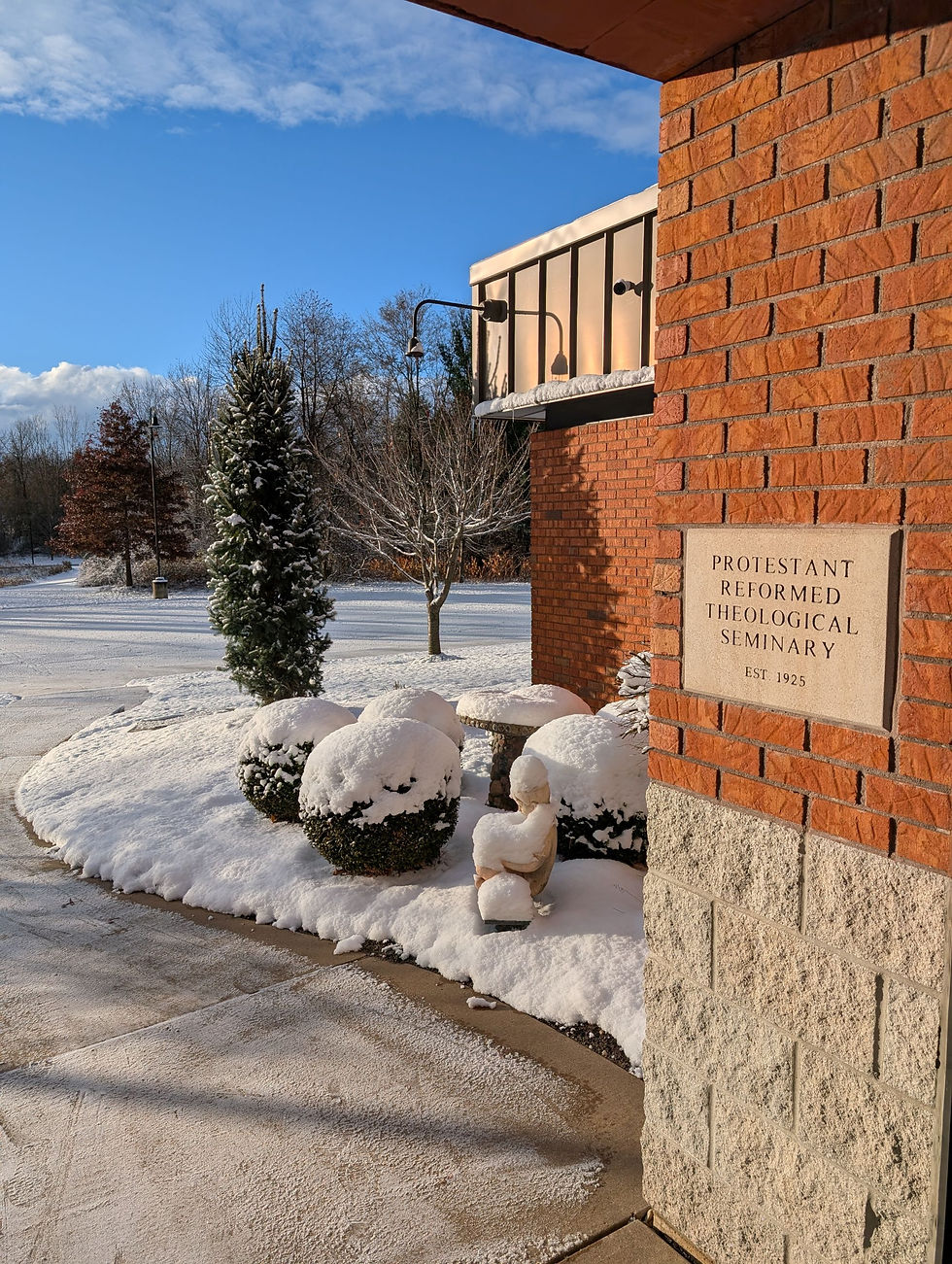Fall 2023 PRT Journal Now Available!
- prcseminary1925
- Nov 10, 2023
- 3 min read

The Fall 2023 issue of the PR Theological Journal is now available in print and digital formats (pdf and epub). This newest issue features four main articles - three related to the Reformed controversies with the Remonstrants (Arminians) - plus a "classic" reprint of a Reformation study from an early PRTJ. And, of course, the issue includes a fine collection of book reviews on a wide variety of subjects. Use the link provided above to begin your reading.
If you are not currently on our mailing list (either for the print edition or the digital editions) and wish to be added, please contact the seminary secretary.
In his "editor's notes," Prof. Doug Kuiper gives the following thorough introduction to this issue:
"The month of October is significant in reformation studies. Martin Luther nailed his Ninety-Five Theses to the church door in Wittenberg on October 31, 1517. Twelve years later, on October 1-4, the Marburg Colloquy (a conference between the Lutheran and German-Swiss reformers) met. The reformation in Geneva dates to October 1532, when William Farel arrived in that city. And October marks the month in which Ulrich Zwingli died in battle; in which William Tyndale, Nicholas Ridley, and Hugh Latimer died of persecution; and in which Theodore Beza died of old age. All this, not to mention the death of Jacob Arminius in 1609, and the birth of several reformers in this month.
"Partly for this reason, the article by Prof. Herman Hanko on the relation between the Lutheran and Calvin seemed appropriate. In addition to being appropriate, it is timely, though published originally in the Protestant Reformed Theological Journal in November 1969.
"Another article in this issue is a reprint, this time of a recent publication. As part of his work in obtaining a ThM degree, Prof. Cory Griess wrote the article that is here published. It was originally published in the May 2023 issue of the Scottish Journal of Theology, the editors of which graciously permitted us to reprint the issue. It faces a significant question: Did Johannes Polyander’s doctrine of the gracious call of God defend the orthodox view of sovereign grace, or concede something to the Arminians? The question is significant, not only because Polyander himself was one of the five theological professors delegated to the Synod of Dordt, but because the answer says something about whether the orthodox men defended the doctrines of sovereign grace after Dordt, or ignored them. Polyander defended them, Prof. Griess contends.
Excepting Prof. Hanko’s article, the main articles in this issue touch on some aspect of Arminian, or Remonstrant, teaching. Prof. Griess’ regards the doctrine of calling. Rev. Joshua Engelsma examines the development of the Remonstrant doctrine of justification, and the orthodox response to it. And Prof. Douglas Kuiper examines and critiques the Remonstrant doctrine of Scripture and the interpretation of Scripture, asking whether the Remonstrants’ wrong view of Scripture explains their wrong doctrines of human nature and divine grace, or whether the wrong doctrines of nature and grace explain their wrong doctrine of Scripture. Read the article to find out the answer.
"Prof. Kuiper has not forgotten the serial treatment of the history of the Protestant Reformed Theological School, or of Classis West of the Protestant Reformed Churches; rather, this article on the Remonstrant iew of Scripture fit the theme of this issue.
"Four men read and submitted reviews of twelve books. Dr. Marco Barone’s interest and background in philosophical studies is evident in his reviews. That Prof. David Engelsma taught and loves dogmatics is evident from the choice of books that he reviewed. Prof. Kuiper teaches hermeneutics; both books that he reviewed regard how to interpret Scripture. And Mr. Julian Kennedy submitted a review of a book regarding taking evil seriously.
"Several petitions are brought to God’s gracious throne, as this issue is written and published. One is that God continue to give the PRCA and its seminary the grace to remain faithful to Him in doctrine and in every aspect of life. Another is that what is set forth in this issue glorify God and help the reader."




Comments